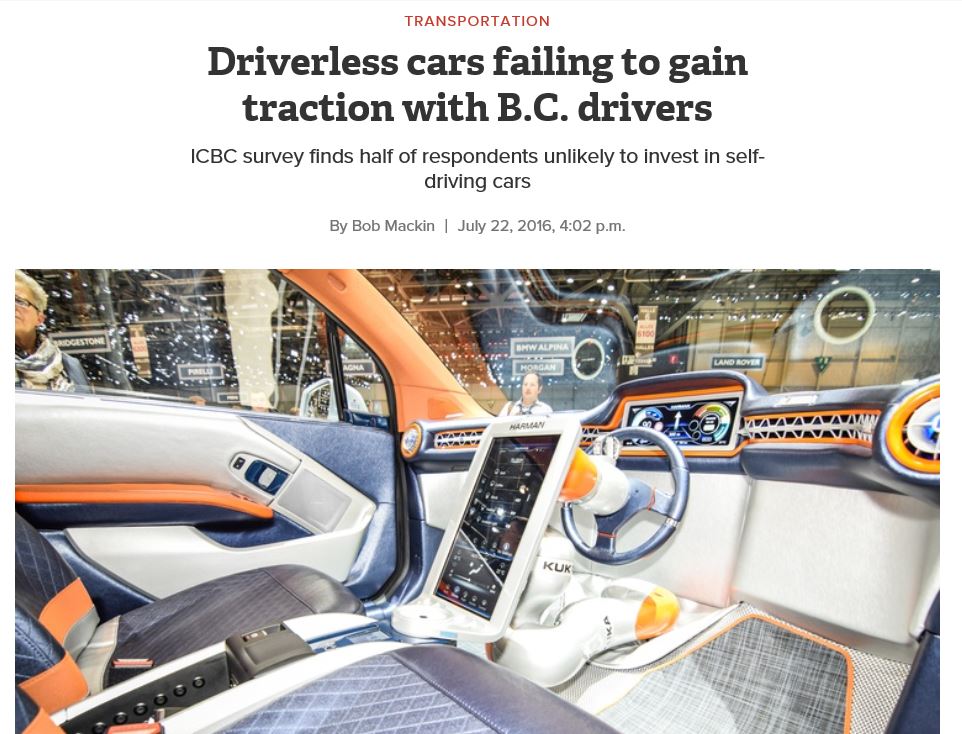From Business in Vancouver:

A survey of more than 1,000 Insurance Corporation of BC (ICBC) customers found that half of them are unlikely to buy a self-driving car if autonomous vehicles go on sale in B.C., while 30% are not interested at all in a fully automated vehicle. …
The ICBC survey found 87% of respondents had heard a lot or some about the technology and a slim majority (53%) believe that self-driving cars would make B.C. roads safer.
“Few consumers trust self-driving cars completely when it comes to getting them safely to their destination,” said the report, indicating 12% of respondents said they trust the technology completely, while 16% do not trust it at all.
Half the respondents said drawbacks included safety consequences of equipment or system failure and 45% were concerned about legal liability if a self-driving car crashed.
Hacking (29%) and tracking of locations and destinations (14%) were other concerns.
The report does not indicate whether any of the respondents had ridden in a self-driving car, but it did include a section on “emotion felt when riding in a self-driving vehicle.” Anxious (28%) and powerless (15%) were the most popular emotions.
Full story here.
Gord Price: In addition to the emotional concerns, the respondents are rightfully concerned about system failure and liability – and those, more than consumer response, are the reasons why these advanced technologies will change our fundamental relationship with the car.
Why bother actually owning a car if you have to be responsible for maintaining it, particularly when any failure might result in your death or a staggering liability in the event you injure or kill someone else? Why not, instead, leave the maintenance and liability up to a fleet manager like a car-sharing firm from which you purchase a mobility package?
The technology will initially be expensive – and quickly obsolete. Another reason not to commit to personal ownership.
But what happens when people no longer have that same emotional connection to the car as we do now, where the vehicle is a reflection of our status and personality? As with a cell-phone communications package, we will love the service a transportation package provides, but with no particular attachment to the always-changing hardware itself.
And once that emotional bond is broken, it also means government has a different relationship with the vehicle too – or more particularly to the citizen-driver. When it comes to taxation and regulation, government will be dealing with service providers, not drivers. The end-user may not even be aware of what the taxation component is, just as today with the cell phone.
That changing relationship may be a more significant change than the technology which makes it possible.













The people at ICBC should feel particularly anxious and powerless since that organization will pretty much disappear when there are only autonomous vehicles on the roads.
Driverless cars: a very bad idea!
It’s just a way to sell more of their product in an oversaturated market.
Have my doubts about driverless cars. But we still have North America’s only driverless metro/subway/SkyTrain. Three lines and the 4th opening late this year. In 1980 we approached the CEO and Board for approval, they supported us and got the Minister and Premier on board (McCartney and Vander Zalm)….amazing. Surveys during trial operation in 1983 showed the great majority of the public was unconcerned–as long as service was fast and frequent.